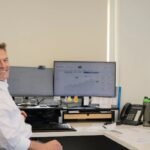Driving under the influence of alcohol is a serious offense with potentially life-changing consequences. If you’re living in or visiting Missouri, understanding the state’s BAC laws is essential. Many people ask, what is the BAC limit, and how does it apply to them in everyday driving situations? This blog provides a simple breakdown of Missouri’s laws, including who they affect, how BAC is measured, and what can happen if you’re over the limit.
What is BAC and How is It Measured?
BAC stands for Blood Alcohol Concentration. It refers to the amount of alcohol in your bloodstream, shown as a percentage. For example, a BAC of 0.08% means there is 0.08 grams of alcohol per 100 milliliters of blood.
BAC is commonly measured through a breathalyzer test conducted by law enforcement during a traffic stop. It can also be tested using a blood sample. Many factors influence your BAC, such as the number of drinks you’ve had, your weight, how fast you drank, and whether you’ve eaten food.
So when asking what the BAC limit is, it’s important to know that it’s not the same for everyone.
Missouri’s Legal BAC Limits
In Missouri, the standard BAC limit for most adult drivers is 0.08%. This means that if your BAC is at or above 0.08%, you are considered legally impaired and can be arrested for driving under the influence.
Missouri follows the general guidelines used in most U.S. states. If your BAC is over this threshold, even if you don’t “feel drunk,” you can still be charged with a DWI (Driving While Intoxicated). Law enforcement does not need to prove that your driving was affected – only that you were over the limit.
BAC Limits for Different Groups
While 0.08% is the most recognized limit, Missouri law sets stricter limits for other groups of drivers:
- Commercial drivers: The BAC limit is 0.04%. This includes anyone driving a commercial vehicle such as a truck or bus.
- Drivers under 21: Missouri has a zero-tolerance law. For underage drivers, the BAC limit is just 0.02%. This means that even a small amount of alcohol can result in legal trouble.
- Repeat offenders or restricted license holders: If you’ve previously been convicted of DWI, your allowable BAC level may be even lower, depending on court rulings or license conditions.
These different thresholds show why simply asking what the BAC limit is doesn’t always lead to a one-size-fits-all answer. It depends on who you are and what kind of license you hold.
What Happens if You’re Over the Limit?
Getting caught over the legal BAC limit in Missouri carries a range of penalties:
- First offense: You may face fines, license suspension for up to 90 days, mandatory education programs, and even jail time.
- Second offense: Penalties increase, with longer license suspension, higher fines, and possible ignition interlock device installation.
- Third offense and beyond: These are treated as serious crimes and may lead to felony charges, long-term license revocation, and extended jail time.
On top of legal consequences, you may also face higher insurance premiums, job-related issues, and long-term personal impacts.
READ ALSO: Managing Student Debt: The Benefits of Working With a Student Loan Attorney
How BAC Can Rise Without Realizing It
Many drivers underestimate how quickly alcohol can raise their BAC. Just two standard drinks in an hour could push a smaller person over the 0.08% limit. Factors such as body size, drinking on an empty stomach, or mixing drinks can all contribute to faster intoxication.
Even if you don’t feel drunk, your BAC may say otherwise. That’s why relying on how you “feel” is not a safe way to judge whether you’re fit to drive.
Refusing a BAC Test in Missouri
Missouri is an “implied consent” state. That means by holding a driver’s license, you automatically agree to submit to chemical testing if you’re suspected of DWI. Refusing to take a breath or blood test doesn’t protect you. In fact, it can result in:
- Automatic license revocation for one year.
- The refusal being used against you in court.
- A potential ignition interlock requirement after your suspension.
So while you may have a legal right to refuse the test, doing so comes with significant consequences.
How to Stay Safe and Within the Law
Avoiding a DWI charge starts with responsible choices. Here are a few simple steps:
- Don’t drive if you’ve been drinking even “just one.”
- Use a rideshare app or call a cab.
- Plan ahead for a designated driver if you’re going out.
- Consider personal BAC testing devices if you’re often unsure.
Understanding BAC limit and how it applies to your situation can help you make better decisions before getting behind the wheel.
Final Thoughts
Missouri takes drinking and driving seriously. The BAC limit is 0.08% for most adults, but stricter rules apply to commercial drivers and those under 21. Even one drink can put some drivers at risk of crossing the limit. Being over that number – even slightly – can lead to serious legal and financial problems.
Knowing the law, staying within limits, and choosing safe transportation are simple ways to protect yourself and others. The best choice is always to avoid driving after drinking altogether. Get in touch with the Rose Legal Services team right away!
YOU MAY ALSO LIKE: How Can Milpitas Criminal Lawyers Assist with My Defense in California?











